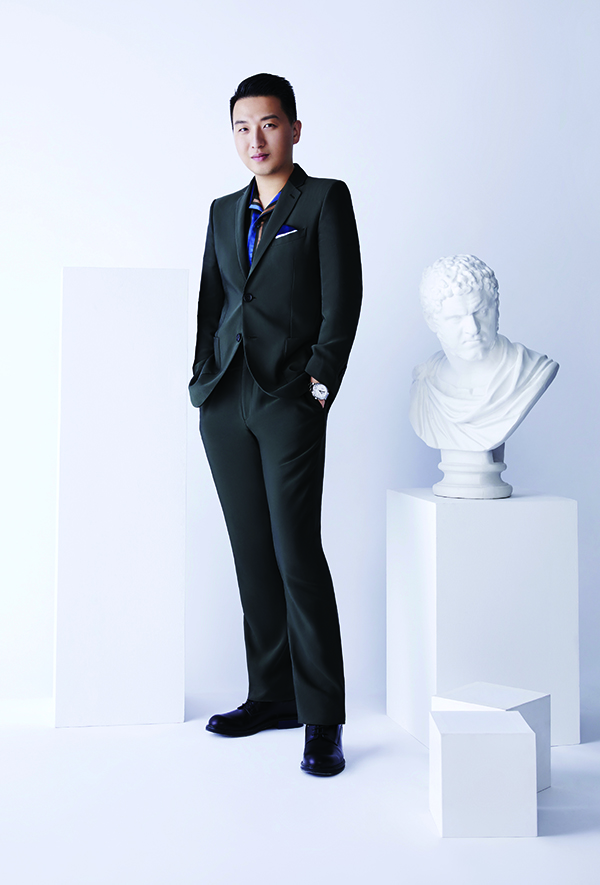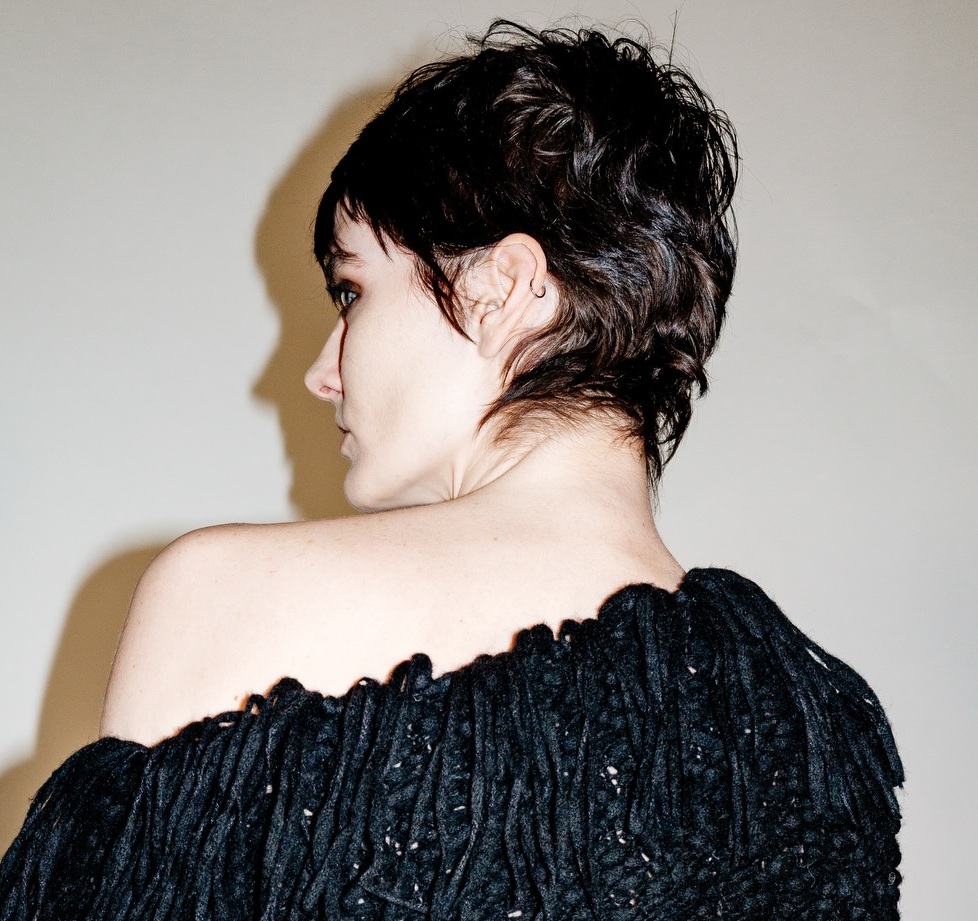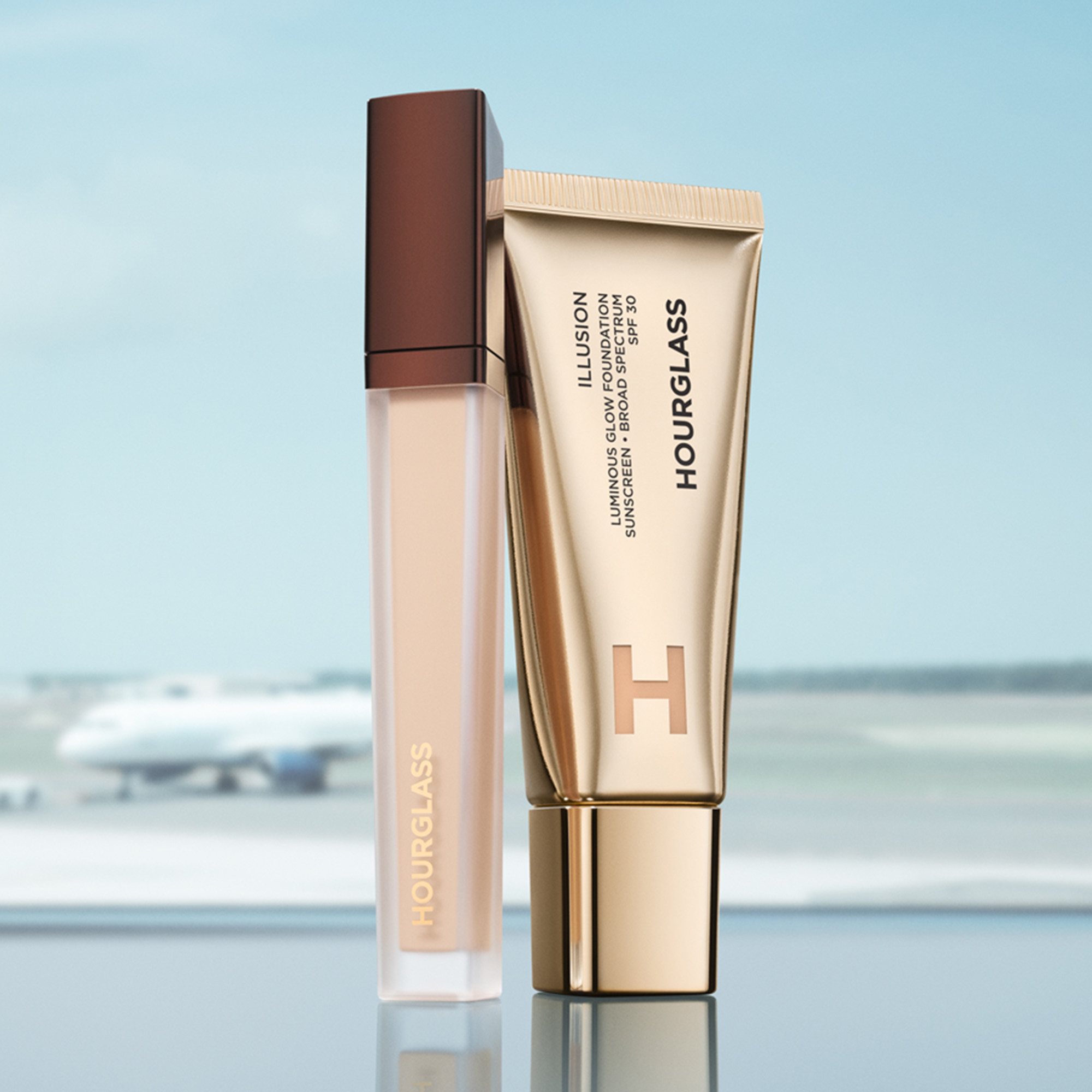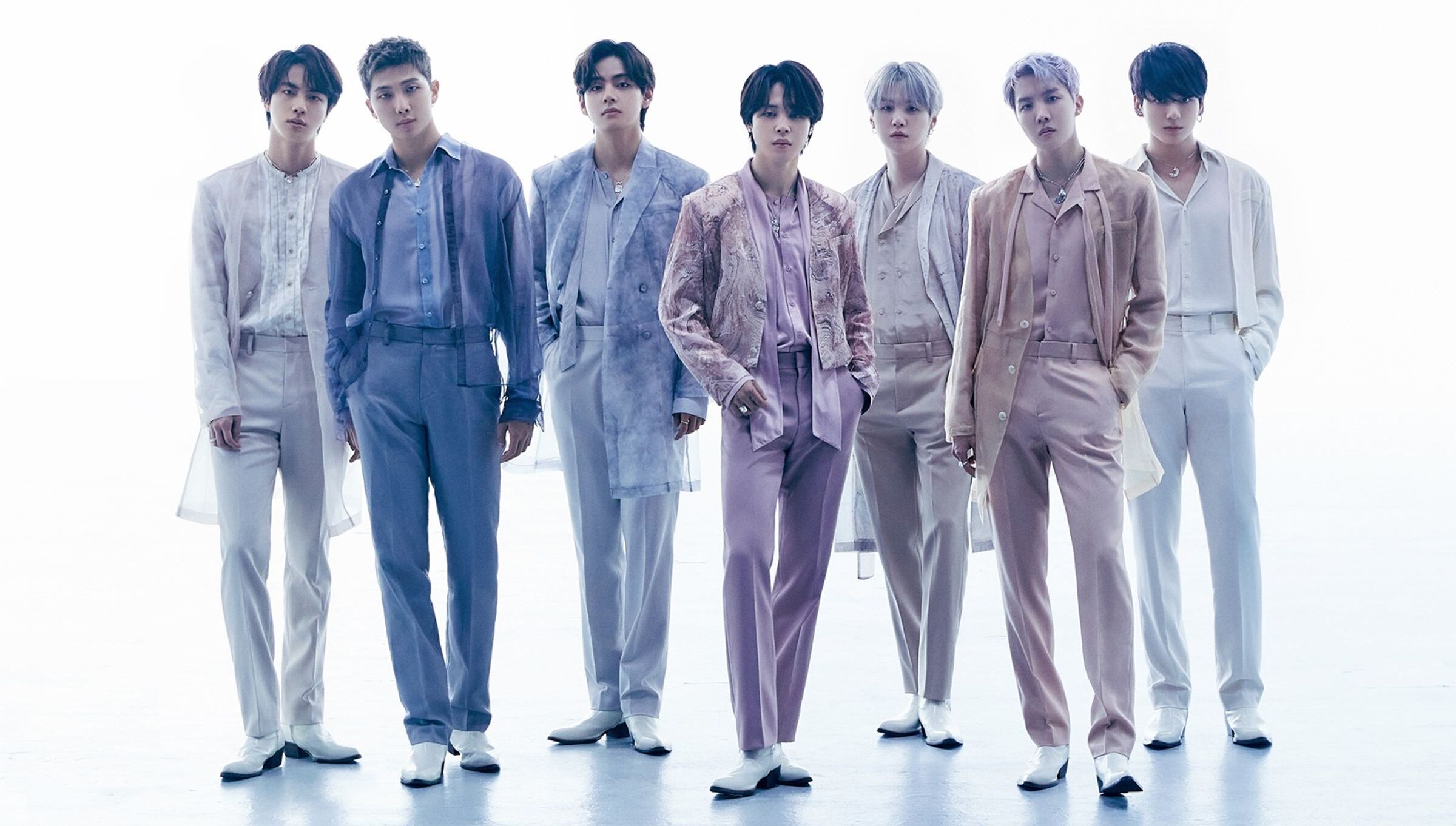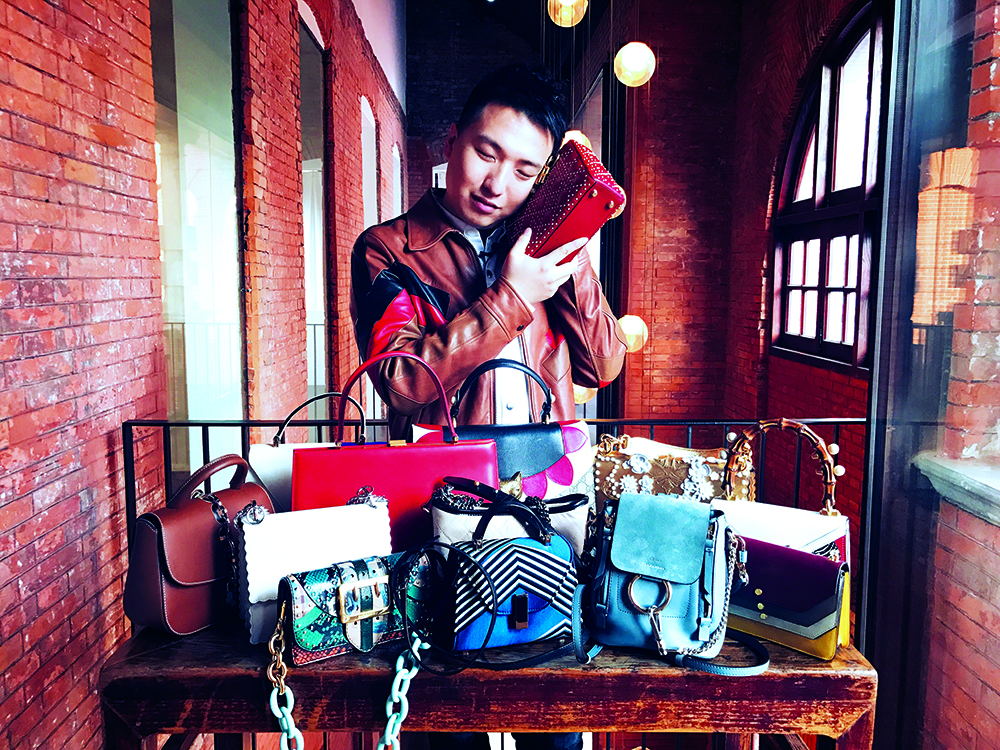
Born out of a love of shopping on Rodeo Drive, Tao Liang, aka Mr Bags, has over three million followers on Weibo and is one of the top Chinese digital influencers in fashion. Before he became Mr Bags, Tao Liang says he was just a normal student who loved fashion. Growing up in Beijing, his home was three minutes away. There’s no need to be apologetic, though. Because of his love of handbags, Mr Bags has gone on to become one of China’s most influential fashion bloggers, with more than three million followers on Weibo. His posts on WeChat constantly hit more than 100,000 views. Tao regularly works with retailers and luxury brands to help push their sales; earlier in the year, he helped Givenchy sell RMB1.2 million worth of bags in a mere 12 minutes. Just last month, Tao went from curating a top selection of goods at travel retailer DFS in Macau to giving a speech at the annual New York Times International Luxury Conference in Brussels, all in the course of one weekend.
In other words, Tao has real clout. And he’s not the only one – in China, social media marketing has boomed; fashion bloggers like Gogoboi, Leaf Greener and Han Huohuo have become celebrities in their own right. In recognition of the growing authority of these digital virtuosos, we’re also revealing the China #legend100 list this month, our definitive list of the fashion and beauty bloggers whose influence trumps that of traditional media, and to whom the luxury world increasingly turn in reaching the new generation.
Here, we speak to Tao to pick his brains about the secrets of success for Chinese bloggers, what the West has yet to learn about the Chinese digital sphere and, ultimately, what Chinese consumers want.
Who were you before Mr Bags?
I was just a normal student. I went to Los Angeles when I was 18 to study at USC and after that, I went to Columbia in New York for my graduate studies. But I love fashion and it was my first time being so far away from my parents, so I really shopped a lot. I went to Rodeo Drive every day. That’s when I started to have this crazy love for bags. And back then, I had this question. So many girls didn’t know what to buy when it came to bags – and I saw so many perfect bags for them. So I started sharing on Renren – it’s like Chinese Facebook – and my friends shared it on their pages. And it just became bigger and bigger.
Do you remember the moment when you thought, “Okay, I’m actually famous now?”
When I was in New York, I got an invitation from Fendi to go to their show in Milan. I was so excited. Someone on their Chinese team called me and said, “You have to come and you can’t be late!” I asked, “Why?” and she said, “You’re front row!” It was the first time a Chinese blogger got a front row seat at Fendi. When I went to Milan for the show, every Chinese face I met on the street knew who I was. That was the first time I felt so recognised.
The Chinese digital world is so different from that of the Western world. What’s your take?
There’s a huge gap between the platforms. In China, people don’t use any platforms from the West because they’re blocked, so people use Weibo and WeChat. Weibo is actually very similar to Twitter in the Western world, but WeChat is so different. It’s so multifunctional. It’s like a combination of all the apps together – it’s really a super app. Once you get inside, you don’t exit at all. So that’s the difference. When you post on WeChat, it’s not like an Instagram post. Whenever you post, you have to write quite a long article. It’s quite similar to blogs in the Western world.
Does the digital world play a much bigger importance in China over traditional media?
In the West, a lot of people are still reading magazines and newspapers, while in China, at least on the mainland, the reality is that a lot of people don’t really read magazines or newspapers anymore. But still, the classic magazines like Vogue and Harper’s Bazaar still have an influence on social media. For example, if a celebrity shoots a cover with Vogue, it’s still big on the internet. So that’s a big influence. But the digital world in China is definitely more influential than in the West.
Apart from Weibo and WeChat, you also have Instagram. Do you use it to reach your fans outside of China?
I don’t actually use Instagram a lot because using a VPN to go through the block is still a lot of trouble. So it’s more like a personal account to share my daily life and stuff. But even my fist group of fans, though we were all overseas in the United States and the United Kingdom, I think 99 per cent are still Chinese and can speak Chinese. So even though I have a very global following, most of them are still Chinese or people who relate to the Chinese culture.
All the luxury brands are looking for a way into the Chinese market. Do you help them with that in terms of social media?
They’re taking baby steps – they’re still in the learning process. I’m working with a lot of brands, not only with their Chinese offices, but with their headquarters. A lot of these brands are from Europe and they’re still learning what WeChat is, what Weibo is. They definitely have a certain knowledge about those social media platforms. But you know, it’s almost like, if you don’t drink Coke, then you don’t know about Coke. Even if someone comes and tells you all the information about Coke, you don’t know what it tastes like. So if you don’t use WeChat on a daily basis, you still don’t know it 100 per cent. They just read it from the reports or hear about it from someone else. They need to gain more knowledge.
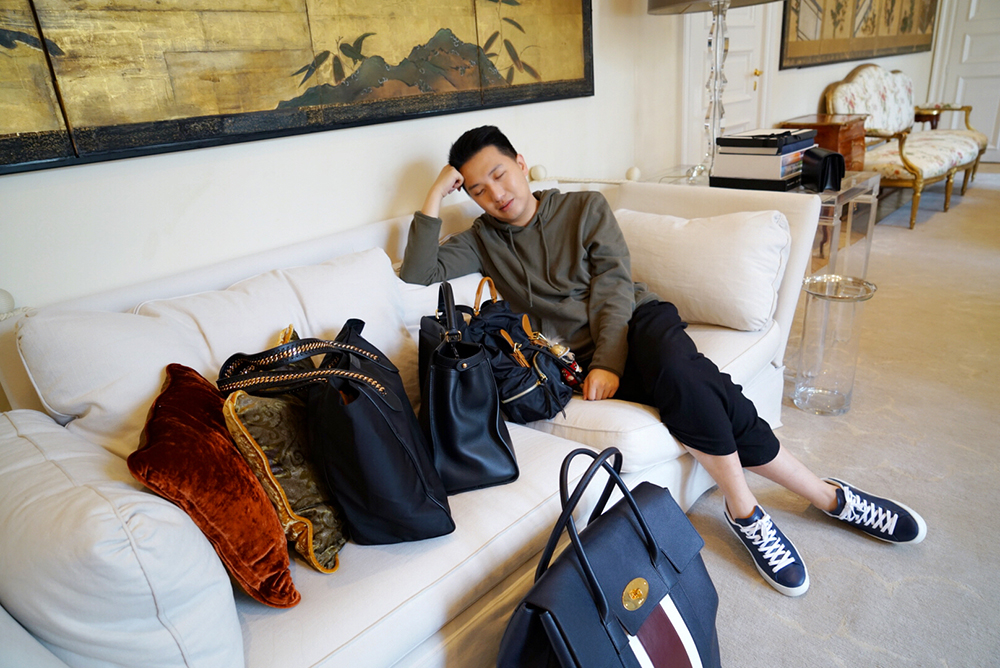
When you first started blogging, Chinese fashion bloggers didn’t really exist at the time. There were other Asia-based bloggers like Bryanboy, but he wrote in English. Did he inspire you in any way?
When I started blogging, it was a very natural, smooth process. I didn’t take any inspiration from anyone else, I just posted about bags and it became a big thing. Back then, I really didn’t have any marketing strategy, I didn’t do anything specific to make it more popular. I think I was quite lucky. While I was in the States, I didn’t have any connections or any access with the brands, so all I did was focus on my content – focus on being honest and pure, and creating something that was useful for my audience. I think that really helped protect my blog at the beginning. If your blog touches on a lot of commercial things in the beginning, it actually can’t become something big in the future. So when I returned to China, my blog was already very mature and the content had the Mr Bags style. Even if I do collaborations nowadays, my audience trusts me and my content.
It’s still authentic and I think that’s the difficult part. Why do you think Chinese influencers are so successful now? What’s the secret to their success?
I think one of the reasons is basically there’s such a huge market in China. And for all the big bloggers in China, all of them, including me, are very hard-working. We have a lot of creative ideas and we’re there to try something new in the market. For example, I’ve done several capsule collections with luxury brands – and that’s something I’d only ever dreamed of. It was something almost untouchable, but now it’s happening in real life for me. I’m always willing to try anything and to aim higher. And most importantly, you have to always have the content – the best content – and then the audience will become attached to you.
Do Chinese people only follow Chinese influencers or do they look at other international influencers, like Chiara Ferragni, for example?
When I was younger, we really chased after Hollywood stars, and we saw a lot of Hong Kong, Taiwan and Koreancelebrities. But now I think a lot of people focus more on Mainland Chinese celebrities. On Weibo, every day there are headlines – we call them “hot topics” – and it’s all about this Chinese celebrity that got divorced, the other one got married, this one wore a beautiful Dior dress, et cetera. So they’re definitely getting more popular. But Chiara is definitely also popular in China. I think in this new generation, we focus more on people we can relate to. So that’s why bloggers have become more influential. People still love celebrities, but they only want to know the gossip – they want to see them in the movies and on TV. But for bloggers, they’re more real – they’re like a friend. We can go shopping together.
Going forward, will brands find themselves working with bloggers and influencers rather than celebrities?
For that, I don’t know – I don’t think so. I think celebrities can do those things, too, and it’s the best of both worlds. Definitely, brands will continue to use the power of both bloggers and celebrities. I actually read a few articles from the West that put celebrities and bloggers together and called them KOL [key opinion leaders]. In China, we only call bloggers KOL. Kris Wu and Angelababy, for example – in China they’re considered superstars, but in the West, they’re categorised as KOLs too, because they definitely influence people’s purchases and their behaviours.
What factors into this influence?
For Mr Bags, the core of my blog is about happiness – the route to happiness. For me, buying a bag isn’t just about investing in a piece of luxury, but it’s also about bringing the buyer happiness. A lot of girls, when they’re really sad, like after a break-up, they just want to shop. Because when you buy a bag, it gives you such crazy amount of joy. So for us, that is key. When people follow us, they don’t just follow us – they follow our content. They follow you because of a certain kind of spirit.
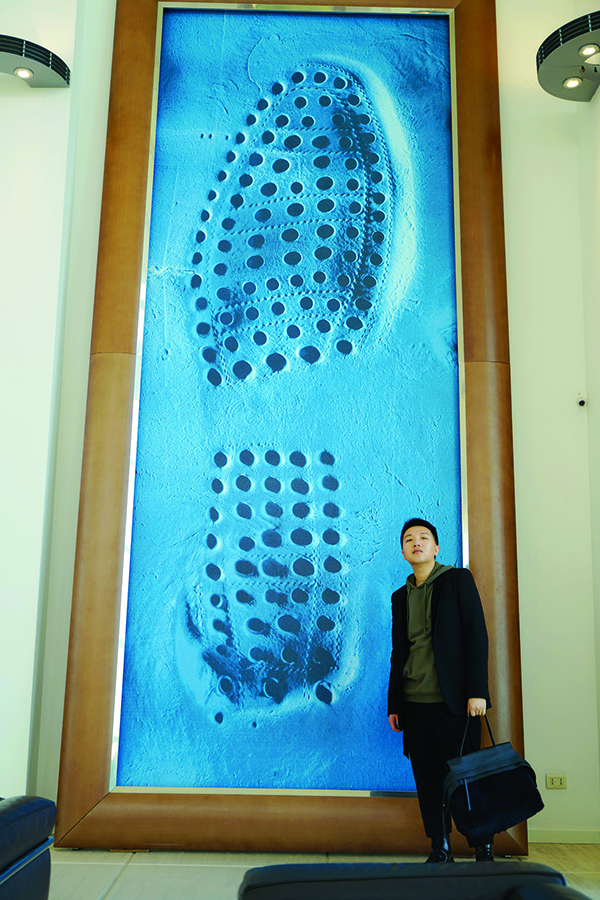
So is Mr Bags more about sharing a feeling rather than sharing style tips?
Yes. I think Mr Bags is all about happiness. It’s about being young and making dreams come true. It’s something I carried throughout my life. When my followers see that I’m just 25, they become very inspired and encouraged. A lot of young Chinese people are building up their careers, too. I do think sometimes maybe I can become a role model for some of the people in China.
What’s the demographic of your readers?
For all Chinese bloggers, I think, our followers are quite diverse. I have followers from 14-year-old girls to 30- and 40-year-old professionals. I think my main target is people from 15 to 25. And 92 per cent are girls – but I have to say, for the 8 per cent men, they have such amazing purchasing power.
Who do you personally follow? Who are the peers you admire?
Gogoboi is definitely one. When I was a student, I followed him and now we’ve become friends. I’m super- busy, so I don’t have the time to read every single article from him, but I definitely read his stuff when I have time. There’s another guy on Weibo who’s not as famous, but he talks about films and celebrities and fashion covers. He’s called “MFCommenter” – in Chinese, it’s “MFPingLunYuan”. I read his posts every single day.
It’s also interesting to note that the vast majority of readers are women, but a lot of the influencers are men. Why do you think that is?
Yes, that’s right – it’s not what you’d expect. I don’t know the reasons for others, but for me, I give a lot of logical analysis about the bags. When girls are talking about bags, it’s really emotional and sentimental. They say, “It’s so beautiful, I really need to buy it, I’ve been working so hard.” But they don’t think about the functionality, the investment value, things related to statistics. That’s something I do. Sometimes I categorise all the bags in order of their age. There are a lot of things girls want to know, but they don’t have a place to find that information. So I give them this handbag perspective.
Where do you get this information?
I read a lot. I’m a bag expert for sure, and I try to be really accurate and really get into the details when I collect information. And luckily for me now, I can work directly with the brands and get more information from them.
What future projects are you working on?
I can tell you at the end of this year we’re going to have a huge collaboration with Longchamp. I took part in the designing process. We’re going to have a very exclusive collection. It’s the first time the brand’s doing a collaboration with a Chinese blogger and it’s going to be sold worldwide. So this is something I’m super-proud of.
The article originally appeared in the December 2017 print issue of #legend



